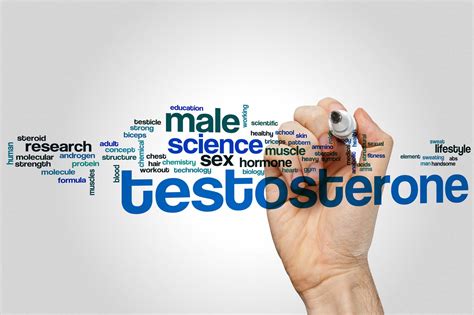What are the potential health risks associated with untreated low testosterone in men?

Low testosterone, often referred to as male hypogonadism, is a condition where the body doesn’t produce enough of the hormone testosterone. While it’s a natural part of aging for testosterone levels to gradually decline, significantly low levels can lead to a range of uncomfortable symptoms and, if left untreated, serious long-term health complications. Understanding these potential risks is crucial for men to seek timely diagnosis and appropriate management.
Cardiovascular Health Issues
One of the most concerning health risks associated with untreated low testosterone is its potential impact on cardiovascular health. Research suggests a strong link between low T and an increased risk of heart disease, including coronary artery disease and heart failure. Low testosterone can contribute to metabolic syndrome, a cluster of conditions—increased blood pressure, high blood sugar, excess body fat around the waist, and abnormal cholesterol levels—that significantly raise the risk of heart disease, stroke, and type 2 diabetes.

Bone Density Loss and Osteoporosis
Testosterone plays a vital role in maintaining bone density. Untreated low testosterone can lead to a significant reduction in bone mineral density, increasing the risk of osteoporosis. This condition makes bones weak and brittle, making them more susceptible to fractures, even from minor falls or stresses. Men with chronic low T are at a higher risk of hip, spine, and wrist fractures, which can severely impact quality of life and lead to long-term disability.
Metabolic Syndrome and Diabetes Risk
As mentioned, low testosterone is closely associated with metabolic syndrome. Beyond heart disease, this connection also elevates the risk of developing type 2 diabetes. Testosterone helps regulate glucose metabolism and insulin sensitivity. When testosterone levels are insufficient, the body may become less responsive to insulin, leading to higher blood sugar levels. This creates a vicious cycle, as obesity and diabetes can also further lower testosterone levels.
Mental Health Decline
The impact of low testosterone extends beyond physical health, significantly affecting mental well-being. Men with untreated low T often report symptoms such as increased fatigue, irritability, difficulty concentrating, and a general decline in mood. Studies have also linked low testosterone to an increased risk of depression and anxiety. These cognitive and emotional changes can severely impact daily life, relationships, and professional performance.

Reduced Muscle Mass and Increased Body Fat
Testosterone is a key hormone for muscle growth and maintenance. When levels drop, men may experience a noticeable decrease in muscle mass and strength, particularly in the limbs. Concurrently, there is often an increase in body fat, especially around the abdominal area. This shift in body composition can lead to reduced physical function, decreased energy, and contribute to other health issues like insulin resistance.
Sexual Dysfunction
While often the most commonly recognized symptom, sexual dysfunction can also be a long-term risk if left unaddressed. Untreated low testosterone can lead to decreased libido (sex drive), erectile dysfunction (difficulty achieving or maintaining an erection), and a reduction in sperm count, potentially affecting fertility. These issues can significantly impact a man’s self-esteem and relationships.

Anemia and Fatigue
Low testosterone can also contribute to anemia, a condition where the body lacks enough healthy red blood cells to carry adequate oxygen to your tissues. This can result in persistent fatigue, weakness, dizziness, and shortness of breath. While often mild, chronic anemia can exacerbate other health conditions and significantly diminish a man’s overall energy and vitality.

Conclusion
Untreated low testosterone is far more than just a reduction in sex drive or energy levels; it’s a serious medical condition with far-reaching implications for a man’s overall health and well-being. From increasing the risk of cardiovascular disease, osteoporosis, and diabetes to affecting mental health and physical capabilities, the potential long-term risks underscore the importance of early diagnosis and appropriate management. If you suspect you have low testosterone, consulting with a healthcare professional is crucial to explore treatment options and mitigate these risks.









